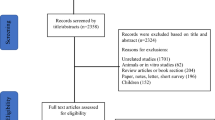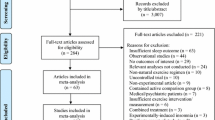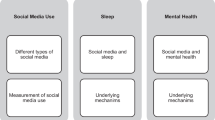Abstract
Background The aims of the study were to understand sleep problems and their effects in advanced cancer patients and spousal and intimate partner caregivers and to examine the directionality of the link between patients’ and caregivers’ sleep problems. Methods Fifty-four advanced cancer patients and their spousal and intimate partners were administered a battery of questionnaires that included the Pittsburgh Sleep Quality Index and the Center for Epidemiological Studies at the patients’ cancer diagnosis and at 2, 4, and 6 months after diagnosis. Results Patients’ and caregivers’ sleep duration was significantly related. Using cross-lagged panel analyses, caregivers’ sleep quality significantly predicted patients’ sleep quality and patients’ sleep quality subsequently predicted caregivers’ sleep quality. Patients’ sleep latency significantly was found to significantly predict caregivers’ sleep latency. Conclusion Patients diagnosed with cancer and their intimate partners have poor sleep quality and sleep patterns are related.




Similar content being viewed by others
References
Berger, A. (2003). Treating fatigue in cancer patients. Journal of the Oncologist,8, 10–14.
Bjørngaard, J. H., Bjerkeset, O., Romundstad, P., & Gunnell, D. (2011). Sleeping problems and suicide in 75,000 Norwegian adults: a 20 year follow-up of the HUNT I study. Sleep,34, 1155–1159.
Buysse, D. J., Reynolds, C. F., 3rd, Monk, T. H., Berman, S. R., & Kupfer, D. J. (1989). The Pittsburgh Sleep Quality Index: A new instrument for psychiatric practice and research. Psychiatry Research,28, 193–213.
Cappuccio, F. P., Cooper, D., D’elia, L., Strazzullo, P., & Miller, M. A. (2011). Sleep duration predicts cardiovascular outcomes: A systematic review and meta-analysis of prospective studies. European Heart Journal,32, 1484–1492.
Carlson, L. E., Tamagawa, R., Stephen, J., Drysdale, E., Zhong, L., & Speca, M. (2016). Randomized-controlled trial of mindfulness-based cancer recovery versus supportive expressive group therapy among distressed breast cancer survivors (MINDSET): Long-term follow-up results. Psycho Oncology,25, 750–759.
Carney, S., Koetters, T., Cho, M., et al. (2011). Differences in sleep disturbance parameters between oncology outpatients and their family caregivers. Journal of Clinical Oncology,29, 1001.
Carter, P. A. (2003). Family caregivers’ sleep loss and depression over time. Cancer Nursing,26, 253–259.
Carter, P. A. (2006). A brief behavioral sleep intervention for family caregivers of persons with cancer. Cancer Nursing,29, 95–103.
Carter, P. A., & Acton, G. J. (2006). Personality and coping: predictors of depression and sleep problems among caregivers of individuals who have cancer. Journal of Gerontological Nursing,32, 45–53.
Carter, P. A., & Chang, B. L. (2000). Sleep and depression in cancer caregivers. Cancer Nursing,23, 410–415.
Collins, K. P., Geller, D. A., Antoni, M., et al. (2017). Sleep duration is associated with survival in advanced cancer patients. Sleep Medicine,32, 208–212.
Davidson, J. R., MacLean, A. W., Brundage, M. D., & Schulze, K. (2002). Sleep disturbance in cancer patients. Journal of Social Science & Medicine,54, 1309–1321.
Engstrom, C. A., Strohl, R. A., Rose, L., Lewandowski, L., & Stefanek, M. E. (1999). Sleep alterations in cancer patients. Cancer Nursing,22, 143–148.
Fernandez-Mendoza, J., Vgontzas, A. N., Liao, D., et al. (2012). Insomnia with objective short sleep duration and incident hypertension: The Penn State Cohort. Hypertension,60, 929–935.
Garland, S. N., Johnson, J. A., Savard, J., et al. (2014). Sleeping well with cancer: A systematic review of cognitive behavioral therapy for insomnia in cancer patients. Neuropsychiatr Dis Treat,10, 1113.
Gibbins, J., McCoubrie, R., Kendrick, A. H., et al. (2009). Sleep-wake disturbances in patients with advanced cancer and their family carers. Journal of Pain and Symptom Management,38, 860–870.
Gottlieb, D. J., Punjabi, N. M., Newman, A. B., et al. (2005). Association of sleep time with diabetes mellitus and impaired glucose tolerance. Archives of Internal Medicine,165, 863–867.
Gottlieb, D. J., Redline, S., Nieto, F. J., et al. (2006). Association of usual sleep duration with hypertension: The Sleep Heart Health Study. Sleep,29, 1009–1014.
Gunn, H. E., Buysse, D. J., Hasler, B. P., Begley, A., & Troxel, W. M. (2015). Sleep concordance in couples is associated with relationship characteristics. Sleep,38, 933–939.
Gunn, H. E., Buysse, D. J., Matthews, K. A., Kline, C. E., Cribbet, M. R., & Troxel, W. M. (2016). Sleep-wake concordance in couples is inversely associated with cardiovascular disease risk markers. Sleep,40, zsw028.
Hann, D., Winter, K., & Jacobsen, P. (1999). Measurement of depressive symptoms in cancer patients: Evaluation of the Center for Epidemiological Studies Depression Scale (CES-D). Journal of Psychosomatic Research,46, 437–443.
Happe, S., & Berger, K. (2002). The association between caregiver burden and sleep disturbances in partners of patients with Parkinson’s disease. Age and Ageing,31, 349–354.
Hearson, B., & McClement, S. J. (2007). Sleep disturbance in family caregivers of patients with advanced cancer. International Journal of Palliative Nursing,13, 495–501.
Hirshkowitz, M., Whiton, K., Albert, S. M., et al. (2015). National Sleep Foundation’s sleep time duration recommendations: Methodology and results summary. Sleep Health,1, 40–43.
Ji, J., Zöller, B., Sundquist, K., & Sundquist, J. (2012). Increased risks of coronary heart disease and stroke among spousal caregivers of cancer patients. Circulation. https://doi.org/10.1161/CIRCULATIONAHA.111.057018
Kakizaki, M., Kuriyama, S., Sone, T., et al. (2008). Sleep duration and the risk of breast cancer: the Ohsaki Cohort Study. British Journal of Cancer,99, 1502.
Kenny, D. A. (1975). Cross-lagged panel correlation: A test for spuriousness. Psychological Bulletin,82, 887.
Kochar, J., Fredman, L., Stone, K. L., & Cauley, J. A. (2007). Sleep problems in elderly women caregivers depend on the level of depressive symptoms: Results of the Caregiver-Study of Osteoporotic Fractures. Journal of the American Geriatrics Society,55, 2003–2009.
Kotronoulas, G., Wengstrom, Y., & Kearney, N. (2013). Sleep patterns and sleep-impairing factors of persons providing informal care for people with cancer: A critical review of the literature. Cancer Nursing,36, E1–E15.
Lauderdale, D. S., Knutson, K. L., Yan, L. L., Liu, K., & Rathouz, P. J. (2008). Self-reported and measured sleep duration: How similar are they? Epidemiology,19, 838–845.
Lee, S., Colditz, G. A., Berkman, L. F., & Kawachi, I. (2003). Caregiving and risk of coronary heart disease in US women: A prospective study. American Journal Preventive Medicine,24, 113–119.
Lt, Hu, & Bentler, P. (1999). Cutoff criteria for fit indexes in covariance structure analysis: Conventional criteria versus new alternatives. Structural Equation Modeling: A Multidisciplinary Journal,6, 1–55.
Maltby, K. F., Sanderson, C. R., Lobb, E. A., & Phillips, J. L. (2017). Sleep disturbances in caregivers of patients with advanced cancer: A systematic review. Palliative & Supportive Care,15, 125–140.
Manabe, K., Matsui, T., Yamaya, M., et al. (2000). Sleep patterns and mortality among elderly patients in a geriatric hospital. Journal of the American Geriatrics Society,46, 318–322.
Manocchia, M., Keller, S., & Ware, J. E. (2001). Sleep problems, health-related quality of life, work functioning and health care utilization among the chronically ill. Quality of Life Research,10, 331–345.
Martin, S. E., Engleman, H. M., & Deary, I. J. (1996). Douglas NJJAjor, medicine cc. The effect of sleep fragmentation on daytime function,153, 1328–1332.
McArdle, N., Kingshott, R., Engleman, H., Mackay, T., & Douglas, N. J. T. (2001). Partners of patients with sleep apnoea/hypopnoea syndrome: Effect of CPAP treatment on sleep quality and quality of life. Journal of Thorax,56, 513–518.
McCurry, S. M., Logsdon, R. G., Teri, L., & Vitiello, M. V. (2007). Sleep disturbances in caregivers of persons with dementia: Contributing factors and treatment implications. Sleep Medicine Reviews,11, 143–153.
Miaskowski, C., Dodd, M., Lee, K., et al. (2010). Preliminary evidence of an association between a functional interleukin-6 polymorphism and fatigue and sleep disturbance in oncology patients and their family caregivers. Journal of Pain and Symptom Management,40, 531–544.
Mullington, J. M., Haack, M., Toth, M., Serrador, J. M., & Meier-Ewert, H. K. (2009). Cardiovascular, inflammatory, and metabolic consequences of sleep deprivation. Progress in Cardiovascular Diseases,51, 294–302.
Mullington, J. M., Hinze-Selch, D., & Pollmächer, T. (2001). Mediators of inflammation and their interaction with sleep. Annals of New York Academy of Sciences,933, 201–210.
Mullington, J. M., Simpson, N. S., Meier-Ewert, H. K., & Haack, M. (2010). Endocrinology rC, metabolism. Sleep loss and inflammation. 24(5), 775–784.
Nijboer, C., Triemstra, M., Tempelaar, R., Sanderman, R., & van den Bos, G. A. (1999). Determinants of caregiving experiences and mental health of partners of cancer patients. Cancer,86, 577–588.
Northouse, L., Williams, A-l, Given, B., & McCorkle, R. (2012). Psychosocial care for family caregivers of patients with cancer. Journal of Clinical Oncology,30, 1227–1234.
Palesh, O., Aldridge-Gerry, A., Zeitzer, J. M., et al. (2014). Actigraphy-measured sleep disruption as a predictor of survival among women with advanced breast cancer. Sleep,37, 837–842.
Palesh, O., Peppone, L., Innominato, P. F., et al. (2012). Prevalence, putative mechanisms, and current management of sleep problems during chemotherapy for cancer. Nature and Science of Sleep,4, 151.
Pellegrino, R., Formica, V., Portarena, I., et al. (2010). Caregiver distress in the early phases of cancer. Cancer,30, 4657–4663.
Radloff, L. S. (1977). The CES-D scale: A self-report depression scale for research in the general population. Applied Psychological Measurement,1, 385–401.
Savard, J., & Morin, C. M. (2001). Insomnia in the context of cancer: A review of a neglected problem. Journal of Clinical Oncology,19, 895–908.
Schulz, R., & Beach, S. R. (1999). Caregiving as a risk factor for mortality: The Caregiver Health Effects Study. JAMA,282, 2215–2219.
Shapiro, S. L., Bootzin, R. R., Figueredo, A. J., Lopez, A. M., & Lopez, G. E. (2003). The efficacy of mindfulness-based stress reduction in the treatment of sleep disturbance in women with breast cancer: An exploratory study. Journal of Psychosomatic Research,54, 85–91.
Simeit, R., Deck, R., & Conta-Marx, B. (2004). Sleep management training for cancer patients with insomnia. Supportive Care in Cancer,12, 176–183.
Stenberg, U., Ruland, C. M., & Miaskowski, C. (2010). Review of the literature on the effects of caring for a patient with cancer. Journal of Psycho-Oncology,19, 1013–1025.
Stepanski, E. J., & Perlis, M. L. (2000). Behavioral sleep medicine: An emerging subspecialty in health psychology and sleep medicine. Journal of Psychosomatic Research,49, 343–347.
Theobald, D. E. (2004). Cancer pain, fatigue, distress, and insomnia in cancer patients. Journal of Clinical Cornerstone,6, S15–S21.
Troxel, W. M., Buysse, D. J., Matthews, K. A., et al. (2010). Sleep symptoms predict the development of the metabolic syndrome. Sleep,33, 1633–1640.
Vgontzas, A. N., Liao, D., Bixler, E. O., Chrousos, G. P., & Vela-Bueno, A. (2009). Insomnia with objective short sleep duration is associated with a high risk for hypertension. Sleep,32, 491–497.
Zhang, Q., Yao, D., Yang, J., & Zhou, Y. (2014). Factors influencing sleep disturbances among spouse caregivers of cancer patients in Northeast China. PLoS ONE,9, e108614.
Funding
This study was funded by National Cancer Institute (Grant Numbers K07CA118576; R21CA127046).
Author information
Authors and Affiliations
Corresponding author
Ethics declarations
Conflict of interest
Qi Chen, Lauren Terhorst, Amy Lowery-Allison, Hannah Cheng, Allan Tsung, Mikhaila Layshock, Daniel J. Buysse, David A. Geller, James W. Marsh, Yisi Wang and Jennifer L. Steel declare that they do not have conflict of interest.
Human and animal rights and Informed consent
All procedures followed were in accordance with ethical standards of the responsible committee on human experimentation (institutional and national) and with the Helsinki Declaration of 1975, as revised in 2000. Informed consent was obtained from all patients for being included in the study.
Ethical approval
All procedures performed in studies involving human participants were in accordance with the ethical standards of the institutional and/or national research committee and with the 1964 Helsinki declaration and its later amendments or comparable ethical standards.
Additional information
Publisher's Note
Springer Nature remains neutral with regard to jurisdictional claims in published maps and institutional affiliations.
Rights and permissions
About this article
Cite this article
Chen, Q., Terhorst, L., Lowery-Allison, A. et al. Sleep problems in advanced cancer patients and their caregivers: Who is disturbing whom?. J Behav Med 43, 614–622 (2020). https://doi.org/10.1007/s10865-019-00088-3
Received:
Accepted:
Published:
Issue Date:
DOI: https://doi.org/10.1007/s10865-019-00088-3




